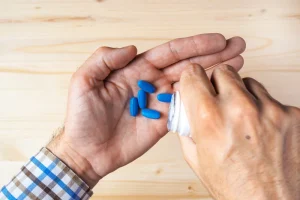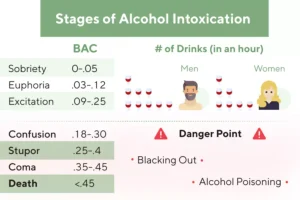How Long Does Alcohol Stay in Your System? Blood & Urine

If there is EtG in your urine, there’s a good chance you consumed alcohol directly or indirectly in the last few days. Roughly 20% of the ethanol in liquor is absorbed into the blood from the stomach and the rest from the small intestine. The longer alcohol stays in the stomach, the longer it takes to be absorbed and the slower the rate of intoxication. Eating before drinking and continuing to snack while you consume alcohol will slow the absorption and reduce its intoxicating impact, but it will prolong the detection period. The metabolism of alcohol has been studied in detail, but many factors determine how long alcohol shows up on a drug test and how long it takes to be eliminated from your body.
How Long Does Alcohol Stay in Your System (Blood, Urine and Saliva)?
- While it plays a good role in removing alcohol metabolites from your system, it does not have the capacity to eliminate traces of alcohol completely.
- Talking to your doctor before taking NyQuil and other medications is best.
- For most people, alcohol is absorbed into the system more rapidly than it is metabolized.
- Your body absorbs alcohol more slowly when you have food in your stomach.
The same 2013 research review above showed that there’s not much you can do to speed up hangovers. So-called hangover cures might help you feel less crappy after drinking too much, but they won’t help your body clear out the alcohol faster. But the problem is that once you’ve gotten to this level, you’re totally beyond good judgment calls. So, there’s a pretty good chance you won’t realize how drunk you are (or that it’s time to stop drinking 🛑). And limit yourself to one drink per hour, max, to give your body time to process the booze without overloading your system. Alcohol metabolization is commonly caused by two enzymes—alcohol dehydrogenase (ADH) and aldehyde dehydrogenase (ALDH).
How Long Does Alcohol Stay in Your System
When you consider how to go about giving up alcohol, account for factors like how much you drink and your reasons for drinking. You have a good shot at passing the test, but there are no guarantees. If you are concerned about passing a test, your best bet is to detox and stop drinking at least 80 hours before the test. The higher the BAC, the greater the alcohol in a person’s blood.
How Long Do The Effects of Alcohol Last?
Having food in the stomach can influence the body’s absorption of alcohol. Food slows the emptying of the stomach into the small intestine, where alcohol is very rapidly absorbed. Self-help support groups, such as Alcoholics Anonymous (AA), provide a safe and supportive environment to share stories and experiences. Group meetings can help individuals stay accountable while going through the recovery process. If you’re struggling with alcohol addiction, many resources are available to help you recover.
How do you get an EtG out of your system?
If you are a heavy or long-time drinker, your liver may require more time to eliminate alcohol from your body. A special test, known as the EtG test, is often given to confirm abstinence in a person who is required to maintain sobriety for legal or medical reasons. The EtG test measures a metabolite how to get alcohol out of your pee of alcohol known as ethyl glucuronide, which can be found in blood, hair, and nails, but it is typically done with a urine test. The EtG test can detect this alcohol metabolite for 3 to 5 days after consuming alcohol but does not accurately indicate if someone is currently intoxicated.
- It’s best to avoid anything that contains alcohol, even in tiny amounts.
- The following is an estimated range of times, or detection windows, during which alcohol can be detected by various testing methods.
- After regaining physical and emotional stability, your recovery programme begins.
Can You Flush Alcohol Out of Your System Quicker?
Even if used externally and not ingested, it’s possible that products containing alcohol will cause you to test positive for alcohol consumption. It’s best to avoid anything that contains alcohol, even in tiny amounts. Although urine tests are a relatively inexpensive and noninvasive way to test for alcohol, they may be inaccurate in some cases. It’s possible to get a false positive on a urine alcohol test. Expert staff will assess and evaluate your condition to determine the best path for recovery. If you require a detox programme, our skilled professionals will provide support throughout the withdrawal process and detoxification.

Most urine tests detect alcohol up to 12 hours after your last drink. Advanced urine tests, however, may be able to detect alcohol 24 hours after drinking. Your liver processes alcohol at the rate of one drink per hour, according to the National Institute on Alcohol Abuse and Alcoholism (NIAAA). That means it can take three to seven hours for your body to metabolise and eliminate one to four drinks, depending on several factors.

Limiting your alcohol intake to one to two drinks during an evening out can help cut down on your bathroom trips — and reduce the likelihood you could have an overnight accident. You can start to feel the effects of alcohol in a matter of minutes. When ingested, alcohol is rapidly absorbed from the stomach and small intestine into your bloodstream before it travels to the central nervous system (brain and spinal cord).




